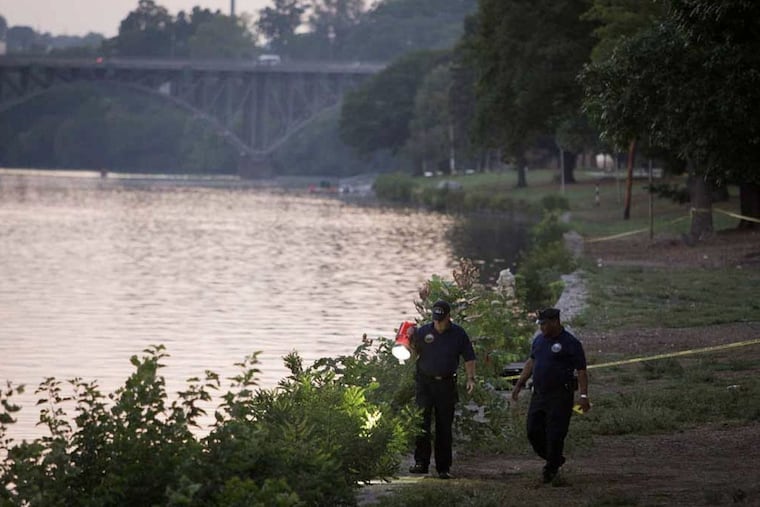A man who helped a Vietnamese gang commit a gruesome murder was sentenced to life in prison
Jason Rivera was convicted of helping members of Born to Kill commit a kidnapping and murder that ended with the victims stabbed, weighted down with cement and dumped into the Schuylkill River.

A New York City man convicted of helping Vietnamese gang members brutally murder two Philadelphia brothers — a killing that ended with the victims stabbed, weighted down with cement, and dumped into the Schuylkill River near Boathouse Row — was sentenced Wednesday to life in prison.
U.S. District Judge Gene E.K. Pratter told Jason Rivera during his sentencing hearing that the 2014 crime was so notorious, it has changed some people’s perception of the river from a main artery for the region to a body of water that was used as a grave.
“It’ll never be the same for anybody that knows what happened in this case,” she said.
Still, Rivera said he maintained his innocence, and his relatives told Pratter they didn’t believe the jury got the verdict right when they convicted him of charges including conspiracy, kidnapping and extortion.
“What was my role?” Rivera asked Pratter at one point. “It doesn’t make any sense to me what they’re saying I did.”
His stepfather, Manuel Martinez, added: “He is not what they are accusing him of here. He is not that, and he does not deserve what is happening to him right now.”
Rivera was one of six men charged in connection with the abduction and slaying of Viet and Vu “Kevin” Huynh in August 2014. The Huyhns and a third man, Tan Voong, were targeted by the group — some of them members of a Vietnamese gang known as Born to Kill — over a drug debt of more than $300,000, prosecutors wrote in court documents.
The group held and tortured the Huynhs for hours in a Southwest Philadelphia home before driving them to the river along Kelly Driver, stabbing them dozens of times, blindfolding them with duct tape, putting buckets of roofing cement on their legs, then tossing them in.
Voong somehow managed to escape after being dumped in the water, and climbed out and flagged down a passing motorist for help. He later provided information that helped lead to his captors’ arrests.
Rivera was not charged with stabbing or drowning any of the victims, but prosecutors said he was nonetheless an integral part of the overall plot, serving as muscle for the man who wanted to recoup the debt, Lam Trieu.
“Lam Trieu asked him to jump, and Jason Rivera said how high?” Assistant U.S. Attorney Robert Livermore said at Rivera’s trial last fall. “That relationship is almost master-servant relationship.”
Voong did not testify at Rivera’s sentencing hearing, but took the stand at his trial, recounting the harrowing moments of his captivity for jurors — including the moment he knew his captors intended for him to die.
“My feet touched the sand. That’s when I knew exactly what was going to happen,” he testified. “I knelt down, and they constantly stabbed me [then] they throw me down to the river.”
One of Rivera’s accused coconspirators remains a fugitive, but the other four have each been sentenced to prison terms, Livermore said.
Only one of them — Tam Minh Le, who prosecutors said stabbed the first two victims before throwing their bodies in the river — received as long a sentence as Rivera. He is on death row in a state prison after being convicted in 2016.
Rivera’s attorney, Thomas Mirigliano, called Rivera’s lengthy sentence an “injustice.” But Pratter noted she had no choice, since life behind bars was the mandatory minimum after a jury convicted him.